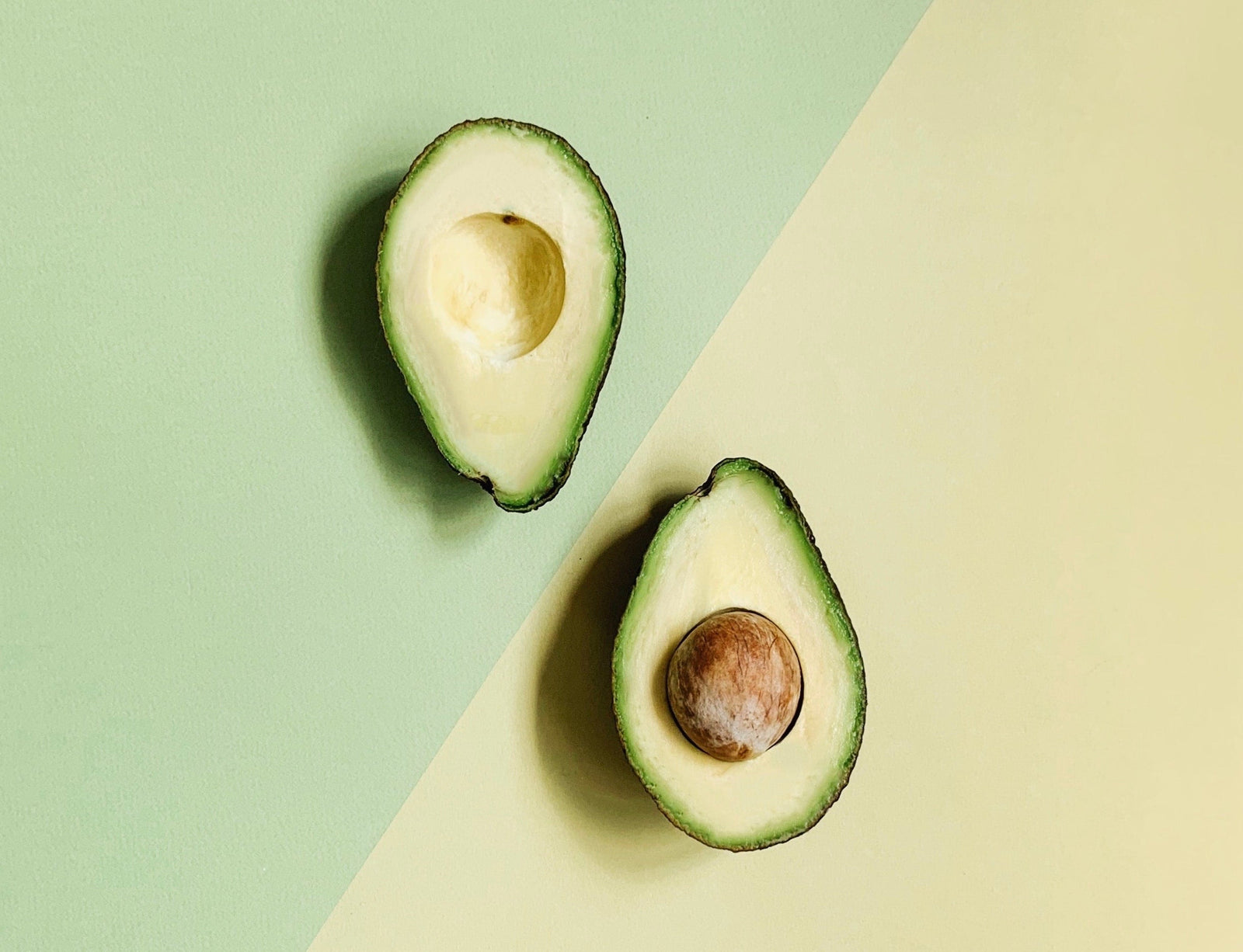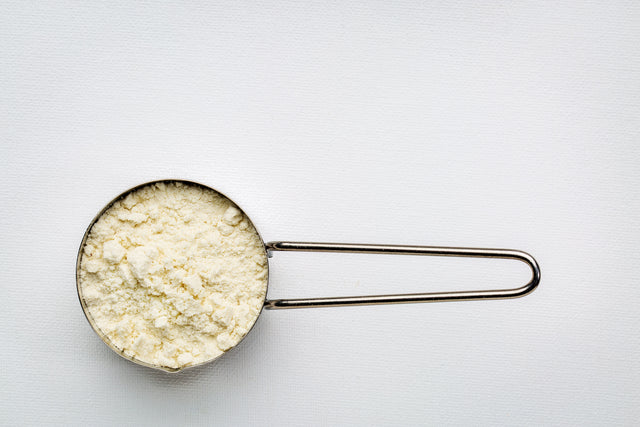Fat does not make you fat. As odd as it may sound saying it out loud, it’s true. Just like other macronutrients, fat comes in a variety of forms, namely good fat vs bad fat, and including too much of one thing, and the wrong type, may lead to unwanted weight gain and even impede your health and fitness goals. So, what are the best fats to include in your diet? And which fats should you stay away from? We’re going to discuss these questions and many more, and breakdown the difference between good fats, bad fats, and everything in between.
Does Fat Make You Fat?
A History Of Why We Think Fat Is Bad For You
In the early 1980s, major food manufacturers and media outlets pushed a campaign of fear around dietary fat. Low-fat diets were promoted as the answer to preventing heart disease and spurring weight loss. The result? A widespread belief that fat was the enemy, despite no substantial scientific evidence at the time to support such claims.
This low-fat ideology, embraced by physicians, government policy, and media, encouraged Americans to consume products like low-fat milk and avoid foods like cheese and butter. Ironically, the obesity epidemic began to surge during the same era, suggesting a disconnect between low-fat dietary trends and real health outcomes.
Only in recent years has there been a major paradigm shift: fat is no longer feared. Instead, a low-carbohydrate, fat-inclusive diet is being recognized for its role in weight management and body fat optimization. However, not all fats are created equal—and understanding the difference between good and bad fats is key to optimizing your health.
✅ Pro Tip: Including healthy fats in your diet can help regulate hormones, improve brain function, and boost fat metabolism when balanced correctly with other macronutrients (Harcombe, BMJ Open, 2015).
Not All Fat Is Created Equal
Fat is a vital macronutrient that provides energy, facilitates the absorption of vitamins (A, D, E, and K), and supports the structure of cell membranes. But not all fats serve your body in the same way.
There are fats to embrace—like monounsaturated and polyunsaturated fats—and fats to limit or avoid, like trans fats and certain processed saturated fats. The quality of fat you consume matters just as much as the quantity.
Whole food sources of fat such as nut butters (peanut, almond, sunflower seed) are healthier choices compared to ultra-processed options like packaged pastries or fried fast food. The latter are often laden with refined sugars, preservatives, and trans-fats, all of which can disrupt blood sugar, metabolism, and appetite regulation.
🥜 Example: Peanut butter is made from a natural source with minimal processing. It helps keep blood sugar stable and supports satiety, while a doughnut made with hydrogenated oils does the opposite.
Good Fats vs. Bad Fats
The difference between good and bad fats boils down to their chemical structure and how they interact with your body. Fats are made of chains of carbon atoms bonded with hydrogen. The fewer hydrogen atoms, the more "unsaturated" the fat.
Healthy Fats You Should Include In Your Diet
The term "healthy fats" generally refers to:
-
Monounsaturated Fats (MUFAs)
-
Polyunsaturated Fats (PUFAs)
-
Essential Fatty Acids (EFAs) like Omega-3 and Omega-6
Incorporate these healthy fats through nutrient-dense foods like:
-
🥑 Avocados
-
🥜 Nuts (Almonds, Macadamia, Cashews, Peanuts)
-
🧈 Nut Butters (Peanut, Almond, Sunflower Seed, Cashew)
-
🧀 Cheese
-
🫒 Healthy Oils (Butter, Olive, Coconut, Avocado)
-
🌱 Seeds (Chia, Pumpkin, Flaxseed)
-
🧬 Supplements like Krill Oil and PLANTPRO5
The Good Fats
Monounsaturated Fats (MUFAs)
Found in: Olive oil, nuts, avocados, and olives.
Benefits: MUFAs help reduce LDL (bad) cholesterol, control hunger, and promote fat metabolism (Mensink, The American Journal of Clinical Nutrition, 2003).
Polyunsaturated Fats (PUFAs)
Found in: Corn oil, sunflower oil, walnuts, flaxseed.
Benefits: Support muscle contractions, inflammation control, and normal brain function.
Essential Fatty Acids (EFAs)
Omega-3 Fatty Acids (EPA & DHA)
Found in: Fatty fish (salmon, mackerel), krill oil, walnuts, flaxseed.
Benefits:
-
Reduce inflammation and oxidative stress
-
Support heart, brain, and joint health
-
Aid in post-workout recovery
(Calder, The American Journal of Clinical Nutrition, 2012)
Omega-3s are essential—your body can’t produce them and they must be consumed through diet or supplementation.
Omega-6 Fatty Acids
Found in: Vegetable oils, seeds, and nuts.
Benefits: Support metabolism, hair growth, and hormone production. However, they must be balanced with Omega-3s to avoid inflammatory effects (Simopoulos, Biomedicine & Pharmacotherapy, 2002).
The Goodish Fat
Saturated Fat
Found in: Butter, coconut milk, bacon fat, red meat.
Saturated fats have long been demonized, but recent research contradicts their vilification. A meta-analysis of 21 studies by the American Journal of Clinical Nutrition found no significant link between saturated fat intake and increased risk of cardiovascular disease (Siri-Tarino et al., AJCN, 2010).
Still, many health organizations recommend limiting saturated fat intake and focusing more on MUFAs and PUFAs.
What Kinds of Fat Should You Minimize?
The Bad Fats
Trans Fats
These are man-made fats formed through hydrogenation, converting healthy oils into solids (e.g., margarine, shortening). Trans fats were once a staple in processed foods but are now recognized as harmful due to their association with:
-
Increased LDL cholesterol
-
Decreased HDL cholesterol
-
Higher risk of heart disease
In 2015, the FDA removed the GRAS status for trans fats and banned them from all food products by 2018 (with extensions through 2019 for smaller manufacturers) (FDA, 2015).
⚠️ Always check labels—even if a product says “0g trans fat,” it may still contain partially hydrogenated oils.
🧾 Comparison Table: Types of Dietary Fats
| Fat Type | Examples | Physical Properties | Health Effects | Recommended Intake |
|---|---|---|---|---|
| Monounsaturated (MUFA) | Olive oil, avocado, almonds, peanuts | Liquid at room temp | ↓ LDL cholesterol, ↑ HDL, reduces inflammation | Emphasize in daily intake |
| Polyunsaturated (PUFA) | Walnuts, flaxseed, fatty fish, sunflower oil | Liquid at all temps | Includes Omega-3 and Omega-6; supports heart, brain, and joint health | Include both, prioritize Omega-3 |
| Omega-3 (PUFA) | Salmon, chia seeds, krill oil, flaxseed | Essential, anti-inflammatory | ↓ Triglycerides, ↑ brain function, improves recovery | Highly recommended; most are deficient |
| Omega-6 (PUFA) | Soybean oil, corn oil, nuts, seeds | Pro-inflammatory in excess | Supports brain/hormone function, but excess may promote inflammation | Balance with Omega-3 (~1:1 to 4:1 ratio) |
| Saturated Fat | Butter, red meat, coconut oil | Solid at room temp | New research suggests it's neutral, not harmful in moderation | Limit to ~10% of daily calories (per USDA) |
| Trans Fat | Margarine, shortening, processed snacks | Artificially solidified | ↑ LDL, ↓ HDL, ↑ inflammation, ↑ heart disease risk | Avoid completely – banned in many countries |
The idea that fat makes you fat is a myth grounded in outdated science and misinformed public health messaging. Including the right types of fats in your diet—especially from natural, minimally processed sources—can help improve satiety, support metabolic health, and reduce disease risk.
Whether you're focused on fat loss, performance, or longevity, quality fats are essential allies in your nutritional strategy.
What Are The Best Fats? Takeaway
A healthy balanced diet should consist of healthy fats, such as MUFAs and PUFAs. These types of fats are commonly found in the foods you already eat such as avocados, nuts, fish, and cooking oil. Just remember that fat is not the enemy. Fat is a vital macronutrient. It provides your body with energy; helps transport vitamins and minerals and establishes the ability to create cell membranes. Your body needs fat, so severely restricting it, even if you’re trying to lose weight, is never a good idea. If you’re buying non-fat or low-fat foods, then STOP. Remember, fat does not make you fat and you have to stop thinking it does. That being said, to all your Ketoers, too much fat is also not healthy. Just because fat does not make you fat, does not mean you should eat a pound of sour cream and cheese on top of your eggs. Find an optimal balance and of healthy fats to include in your diet.
SWOLVERINE is an endurance athlete and active lifestyle brand. Made for the elite athlete, and the strong-willed our products were designed to fuel your athletic performance. We perform when you perform.
We believe that everyone can optimize not only their athletic performance but their human potential. The way we believe we can optimize performance is through transparency, clinically effective doses, and clinically proven ingredients with evidence-based outcomes. We provide the nutrients you need to power your active lifestyle.














